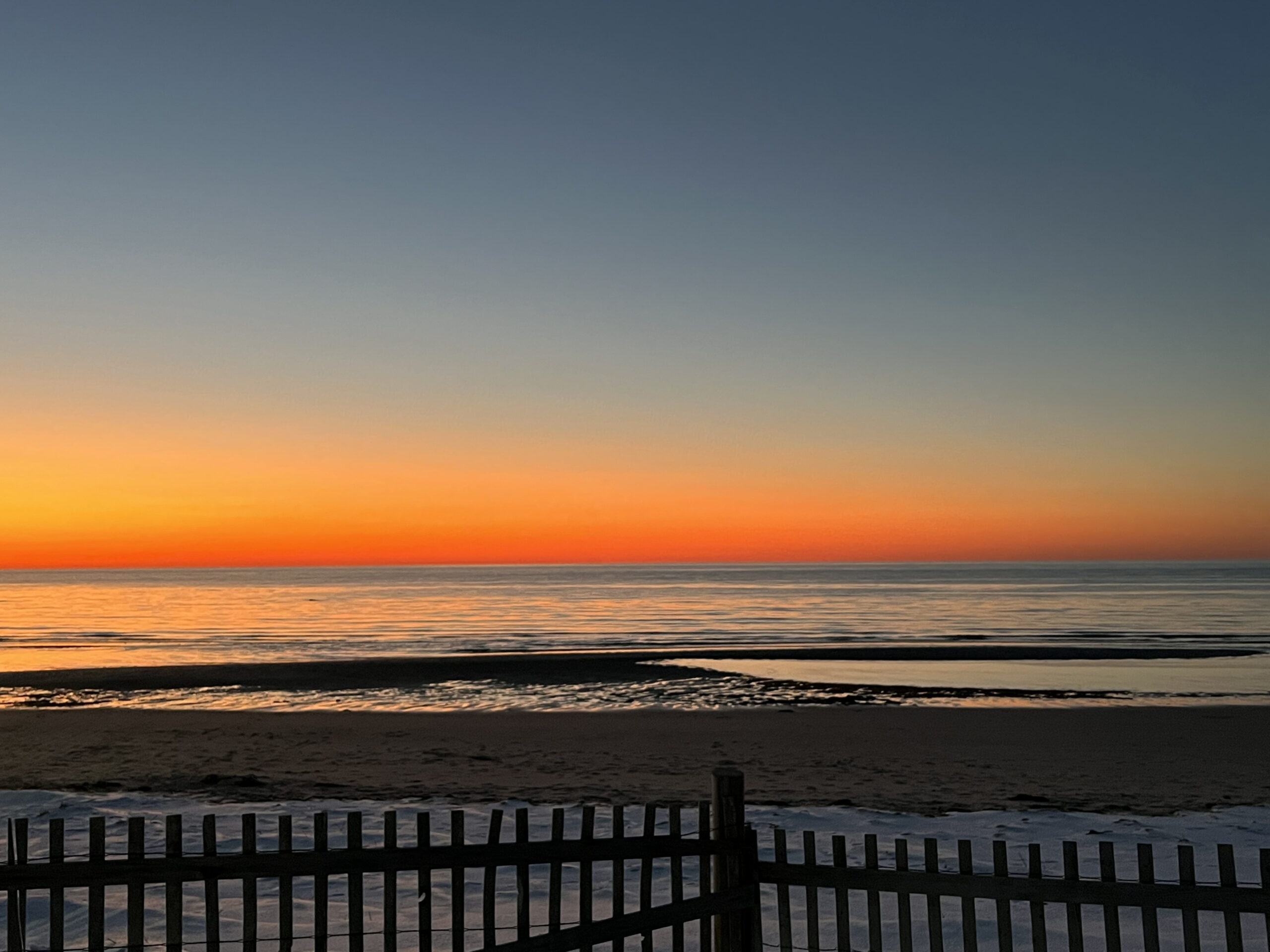The last light of day
February 27, 2025
 Courtesy of Ella Ferrucci
Courtesy of Ella FerrucciSunset marks the end of the day’s light. On some nights, the sky could light up in hues of pink and orange and maybe purple, but on others the sky could remain in a cloudy haze before the darkness takes over.
My dad has a knack for knowing if a night will have a good sunset or not. To him, a “good” sunset means color painting the sky. He will look out the back kitchen window, hands leaning on either side of the sink, his face pressed close against the glass, and examine the clouds and the placement of the sun in the sky. There is really no rhyme or reason behind his guessing game, but most of the time he is miraculously correct.
There is a beach in my hometown on Cape Cod where each night, dozens of locals and tourists alike flock to catch the sunset. Skaket Beach is on the bayside of town. At low tide, the beach expands far into the horizon, revealing a vast landscape of textured sand that fits perfectly in the arch of your feet, with patches of shallow water pools littered with hermit crabs and scattered oyster traps. But when the tide rises, water comes crashing in, leaving just a sliver of sand between the edge of the parking lot and the tip of the incoming waves. This spot is one of the only places on the East Coast of the country where the sun fades into the horizon.
When the daylight begins to fade over town, a steady flow of cars winds down the narrow roads that lead to the water’s edge. The parking lot is quite small, with a sandy layer blurring the line markings of individual spots. All attendees, even if subconsciously, vie for the few spaces that look directly out at the scene, allowing for a comfortable viewing experience inside the warmth, or cool, of the car, with the added bonus of evading the influx of mosquitoes at sundown.
In the winter, when the wind whips across the water, uncomfortably blowing sand in your face, people will stop for a quick look, just peeking their head out the car window or braving a few steps on the sand. But in the summer, children build sandcastles in the wet sand, couples lounge on a towel over a bottle of wine and dogs run amok in the small water pools, all awaiting the small moment, a few seconds, when the sky erupts in color.
One evening when my dad and I went to Skaket for the sunset, we met an older man, probably in his late sixties. He caught our eye first because of the large, professional-looking camera that dangled around his neck. Many people take pictures of the sunset; some squat down onto the sand to get a shot of sun’s reflection on the water or walk out to the farthest tip of muddy grass to get as close to the sun as possible, but most shots are just taken from a simple phone. He wore an oversized black and white varsity jacket and dark blue jeans tucked into knee-high muck boots, although the tide was low. When he walked past us, we exchanged a brief smile as the back of his jacket revealed “Bowdoin” in bold embroidered letters across his shoulders.
In conversation, this gentleman revealed he had attended the sunset at Skaket Beach each night for around the past two years. That is 730 consecutive sunsets. 730 nights of never knowing whether the nightfall will bring vibrant shades of orange and red dancing in the sky or a grey overcast as rain drizzles down, but capturing them all regardless.
The sunset is a place of community. You never know who you will meet as people from near and far flock to enjoy the beauty of the moment in unity. It is as if the chaos of life halts for the few moments when the sun nears closer and closer to the horizon. But then, the second the glow has passed, and the sun has gone to sleep, everyone hops back into their cars and returns to the lives they had placed on pause for this brief moment of appreciation for the natural world.
No matter the excitement or the sorrow of a given day, the sun will always set, and a new day will always begin.
Ella Ferrucci is a member of the Class of 2026.

Comments
Before submitting a comment, please review our comment policy. Some key points from the policy: